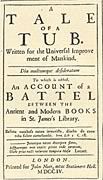|
an archive of my forays into fact and fiction
|
|
Speed reviews: part I
— Love @ 08:43 Comments (1)
Filed under: A-Z Reading Challenge, B, Book Blowout, C, Classics, D, English, GLBT interest, Historical, History, Lifestyle, Mystery, Religion, Romance, Science Fiction, Sex, sexuality & gender, Speed reviews, Swedish, To Be Read, Young Adult
Since I’m sick* and way behind on reviews, I’ve realised the only way to catch up is to make them speed reviews and post a whole batch at once.
The Age of Napoleon; Alistair Horne, eng, 235 
Interesting, but a little choppily written, and also the author assumes you know certain things and never explains them, while others he explains over and over again.
C
Cold Comfort Farm; Stella Gibbons, eng, 253 
Funny, though I accidentally didn’t read the preface, so I wasn’t 100 % how much of it was intentional (all of it, as it turns out, and as I suspected). Flora Poste is kind of annoying, but all right all the same.
For the TBR reading challenge and as part of the BBC Big Read.
B
Rebecca; Daphne du Maurier, eng, 410 
A re-read, not as good as I remembered it, but still lovely. Maxim is both wonderful and creepy.
C
Med uppenbar känsla för stil; Stephan Mendel-Enk, swe, 128 
Interestingly written about men and what’s considered masculine. References Morrissey at some points, mostly in connection with a man who went berserk and killed people. Lovely… not!
C
Unspeakable Love: Gay and Lesbian Life in the Middle East; Brian Whitaker, swe, 230 
Interesting, scary and occasionally a little bit hopeful.
C
Ingen behöver veta; Christina Wahldén, swe, 139 
About male rape and how it does exist, but people find it hard to believe. Kind of a non-ending, but then I suppose that’s sadly the case in most instances of actual male rape also.
C
Ingen grekisk gud, precis; Katarian Kieri, swe, 217 
Kind of brilliant tale of a young girl who falls for a teacher. Kind of brilliant mostly because the main character is into Morrissey, but for other reasons also. I was a bit worried where it was going to end, but it’s kind of perfect, really.
B
Sandman: The Kindly Ones; Neil Gaiman et al., eng, 335 
I wouldn’t say Sandman is Gaiman at his best, but I do like the stories and so also in this volume. Not my favourite, though.
For the TBR reading challenge.
C
Doctor Who: The Nightmare of Black Island; Mike Tucker, eng, 255 
Scary monsters and kiddies with nightmares. I liked it, but not as much as other DW books.
C
Doctor Who: The Art of Destruction; Stephen Cole, eng, 256 
Farming in Africa, golden statues and creepy aliens. Good, but not great. Doctor’s always nice, though.
C
Doctor Who: The Price of Paradise; Colin Brake, eng, 255 
References Franz Ferdinand and other pop culture a time or two. Not the best of the DW books I’ve read—I don’t much care for Colin Brake’s style of writing it, though I can’t put my finger on the exact reason.
C
Tro, hopp och burnout; Johan Unenge, swe, 228 
YA story about a guy who’s really into cars and death metal, who ends up going on a confirmation camp. It’s a decent story, and I was happy to see it didn’t end up quite where I expected it would, but the writing style is very, very choppy and not at all my cup of tea.
For the A-Z reading challenge.
C
Vadå feminist; Lisa Gålmark, swe, 188 
Basic guide to feminism. I wasn’t too keen on the writing and didn’t like the book all that much. Mostly it made me a little annoyed with the author, though it did contain sections worth thinking about. It bothers me that there is no question mark in the title.
For the A-Z reading challenge.
D
Homofamiljer; Sara Stenholm & Cecilia Strömberg, swe, 312 
About rainbow families and different ways to get one. Interesting, especially the personal stories, but not fab.
C
*Just a cold, but a bad one. I hate colds. And I’ve run out of Kleenex, which means my nose is very, very sore from regular paper towels. Woe.
A Christmas Carol; Charles Dickens
— Love @ 12:58 Comments (1)
Filed under: C, Classics, Decades '08, English
 A Christmas Carol A Christmas Carol
by Charles Dickens

For the Decades ’08 reading challenge (first published 1843) and part of the BBC Big Read.
English
77 pages
Dover Publications
ISBN: 978-0-486-26865-1
First line: Marley was dead: to begin with.
Back cover blurb:
In October 1843, Charles Dickens—heavily in debt and obligated to his publisher—began work on a book to help supplement his family’s meager income. That volume, A Christmas Carol, has long since become one of the most beloved stories in the English language. As much a part of the holiday season as holly, mistletoe and evergreen wreaths, this perennial favorite continues to delight new readers and rekindle thoughts of charity and goodwill.
With its characters exhibiting many qualities—as well as failures—often ascribed to Dickens himself, the imaginative and entertaining tale relates Ebenezer Scrooge’s eerie encounters with a series of spectral visitors. Journeying with them through Christmases past, present, and future, he is ultimately transformed from an arrogant, obstinate and insensitive miser to a generous, warmhearted, and caring human being. Written by one of England’s greatest and most popular novelists, A Christmas Carol has come to epitomize the true meaning of Christmas.
Thoughts: I’ve been meaning to read this for years and years and years, but I never did get around to it until now.
I knew the basics of the story already, of course, having seen an animated adaption or two in my day, but I was pleasantly surprised at how good I found it. Somehow, I don’t know why, I was expecting to almost struggle through it and want to give up because of boredom, or what have you. There really was no reason for me to be expecting that, as I’ve liked all the Dickens I have read so far, plus there has to be a reason for its popularity.
At any rate, I get to mark another book on the BBC Big Read as successfully read, and to dole out a C rating.
Heart of Darkness; Joseph Conrad
— Love @ 19:51 Comments (2)
Filed under: C, Classics, Decades '08, English, Historical
 Heart of Darkness Heart of Darkness
by Joseph Conrad

For the Decades ’08 reading challenge (first published 1902).
English
111 pages
a Project Gutenberg e-book
First line: The Nellie, a cruising yawl, swung to her anchor without a flutter of the sails, and was at rest.
Back cover blurb:
In this tale of colonial exploitation, the narrator, Marlowe, journeys deep into the heart of Africa. But there he encounters Kurtz, an idealist apparently crazed and depraved by his power over the natives, and the meeting prompts Marlowe to reflect on the darkness at the heart of all men.
This text refers to an edition other than the one I read.
Thoughts: I’ve heard this book mentioned again and again, and I’ve always sort of meant to read it, but I’ve never really known anything about it except the title.
This afternoon I took the time to read it and it was an interesting story. Very dark, but I should maybe have clued into that from the title, had I not been a complete idiot. I did find the narrative a little hard to follow at times, but I’m not sure how much that had to do with the format I read it in (e-book), and how much it was due to the actual writing.
Heart of Darkness receives a C rating. It was an okay read, but I had some issues with the flow of narrative, and at times I was made exceedingly uncomfortable by the blatant racism. It’s true that it was written over a hundred years ago, when racism was more accepted, but I’m reading it now, with 21st century sensitivities, and of course that’s going to colour my reading experience.
Daddy-Long-Legs; Jean Webster
— Love @ 11:33 Comments (1)
Filed under: B, Classics, Decades '08, English, Young Adult
 Daddy-Long-Legs Daddy-Long-Legs
by Jean Webster

For the Decades ’08 reading challenge (first published 1912).
English
160 pages
J.M. Dent & Sons Ltd/E.P. Dutton & Co. Inc.
ISBN: n/a
First line: The first Wednesday in every month was a Perfectly Awful Day—a day to be awaited with dread, endured with courage and forgotten with haste.
Back cover blurb: n/a
Thoughts: I’ve read Daddy-Long-Legs before, but always in Swedish, so this was a bit like reading it for the first time. I’ve always liked it in Swedish, and I like it even more in the original.
For those of you who aren’t familiar with it, it’s the story of Judy, a girl who’s grown up in an orphanage. Her real name is Jerusha, because the head of the orphanage had a habit of picking first names from head stones (and last names from the phone directory, which is why Judy is an Abbott). When Judy’s eighteen, one of the trustees of the orphanage decides to sponsor her education at college. His only demand on her is that she write him one letter a month, to tell him how she’s doing at school.
In essence, then, it’s a novel in letters. A format that is not always easy to pull off, but that Webster truly excelled at (she wrote other novels in the same style—the sequel to this one, called Dear Enemy, being one of them).
I’m giving this a B grade, in part because the writing is such that I got pulled in, and in part because there is an underlying romance that is lovely, but not too in-your-face and definitely not the only thing in the story. I like that sort of thing.
If you haven’t already read it, do it now! (Or at least soon. If you’re not averse to reading things on the screen, you can find this, and its sequel, at Project Gutenberg.)
A Tale of a Tub; Jonathan Swift
— Love @ 18:45 Comments (3)
Filed under: A-Z Reading Challenge, C, Classics, Decades '08, English
 A Tale of a Tub A Tale of a Tub
by Jonathan Swift

For the Decades ’08 (first published 1704) and A-Z reading challenges.
English
132 pages
a Project Gutenberg e-book
First line: My LORD, Though the author has written a large Dedication, yet that being addressed to a Prince whom I am never likely to have the honour of being known to; a person, besides, as far as I can observe, not at all regarded or thought on by any of our present writers; and I being wholly free from that slavery which booksellers usually lie under to the caprices of authors, I think it a wise piece of presumption to inscribe these papers to your Lordship, and to implore your Lordship’s protection of them.
Back cover blurb: n/a
Thoughts: I really quite enjoyed this book, though I am well aware that I am missing out on a lot of references and things that would have made it even more enjoyable, had I lived in the day and age that it was published (that is to say, just over three hundred years ago). It’s amazing, though, how some things work even centuries after their first conception.
A C rating this time, because it was in parts a little hard to get through (I have to admit to skipping a paragraph or two of the digressions).
This is the second book I’ve read for the Decades challenge, and since the first was published in 1980, I now have quite some work to do to tie the two up (that is to say, I need to read one book from each decade between the two) . I’m quite looking forward to that, though!
|
|















 A Christmas Carol
A Christmas Carol
 Heart of Darkness
Heart of Darkness
 A Tale of a Tub
A Tale of a Tub